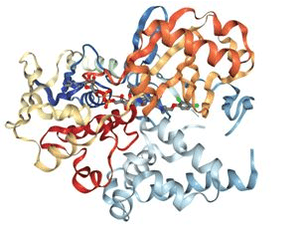INTEGRATING GENOMIC DISCOVERIES INTO FORENSICS: A MINI REVIEW
Keywords:
Genetics and Crime, Genes and criminal Behavior, Monoamine Oxidase, Warrior GenesAbstract
The justification that behavioral genetic evidence provides in criminality remains a wonder. Scientific evidence suggests that a decreased activity of the enzyme monoamine oxidase (MAOA-L) dubbed the warrior gene surges the possibility for aggressive, antisocial behavior and increased criminality. Ever since the human genome project was completed, breakthrough in genetics and biotechnology are now advancing at a speedy rate. Advancement in genetics and biotechnology has opened a frontier to carry out investigation on the influence of genetics on human behavior at the molecular-genetic level. The interplay between genes and susceptibility to diseases has extensively been accepted, but, the similar link between genes and predisposition to criminal behavior is yet to gain a wide acceptance. Notwithstanding this cynicism, biological studies have revealed that relatives of convicted criminals have higher chances of criminality, suggesting a genetic association to certain criminal behavioral tendencies. Emerging data and evidence indicates that without recourse to genetics, there would be a limited opportunity in elucidating the mechanism and reason for criminal, aggressive and antisocial behavior of some individuals. In this light, reports from some scientific finding revealed that monoamine oxidase A (MAOA) provides the strongest association between genetic variation and aggressive behavior particularly low gene variant monoamine oxidase A (MAOA-L) which has been introduced by experts as evidence for criminal behavior. Beside a satisfaction of scientific curiosity, genetic research portends the potential to contribute to preventive measures and investigation into the genetic etiological correlation of criminal behavior may result to the opening of a new frontier for treatment and intervention.

Peer Review History:
Received: 6 February 2022; Revised: 12 March; Accepted: 14 April; Available online: 15 May 2022
Academic Editor: Dr. Asia Selman Abdullah , Pharmacy institute, University of Basrah, Iraq, asia_abdullah65@yahoo.com
, Pharmacy institute, University of Basrah, Iraq, asia_abdullah65@yahoo.com
Reviewers:
 Dr. Dennis Amaechi, MrsFoluBabade Mini Estate , Flat 5 by Old Soldiers Quarter, Sabongari/Bwari, Abuja- Federal Capital Territory, Nigeria. amaechitoexcel@yahoo.com
Dr. Dennis Amaechi, MrsFoluBabade Mini Estate , Flat 5 by Old Soldiers Quarter, Sabongari/Bwari, Abuja- Federal Capital Territory, Nigeria. amaechitoexcel@yahoo.com
 Dr. Idoko Alexander, Caritas University, Enugu, Nigeria, idokoalexander1@gmail.com
Dr. Idoko Alexander, Caritas University, Enugu, Nigeria, idokoalexander1@gmail.com
Downloads

Published
How to Cite
Issue
Section

This work is licensed under a Creative Commons Attribution-NonCommercial 4.0 International License.









 .
.